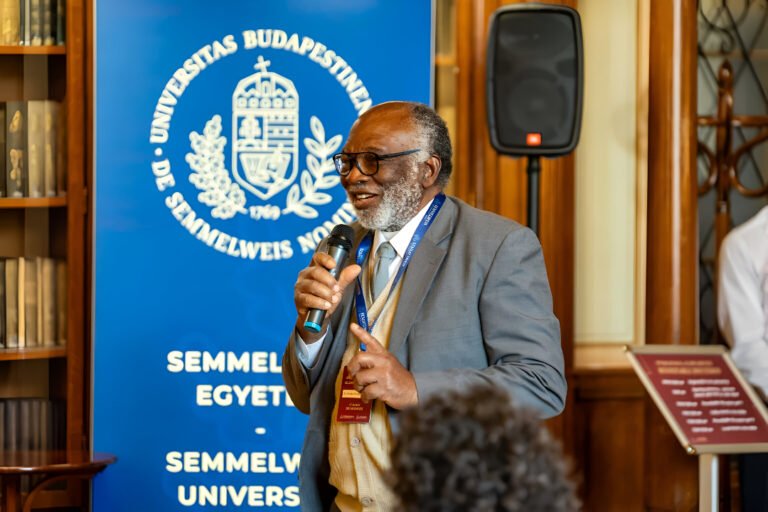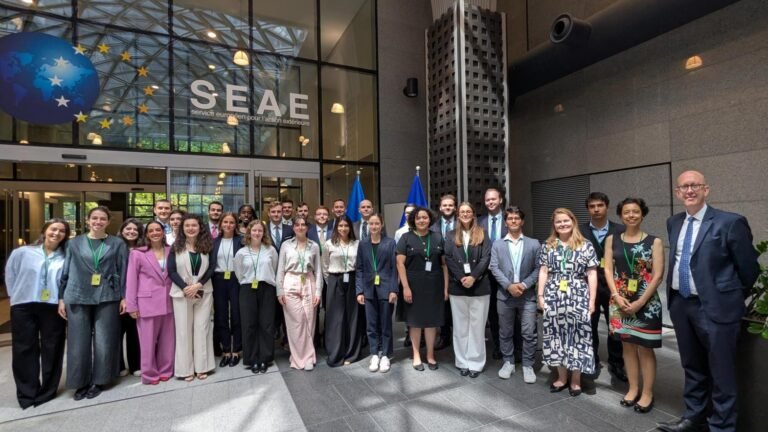
Published: August 8, 2025
The growing need for more knowledge and hands-on experience with implementing industrial symbiosis in Europe sparked the launch of the EU-funded project CORALIS—now concluded after 4.5 years. Researchers from Linköping University (LiU) led two of the project’s core focus areas: management research and education.
“There are so many opportunities to use resources more efficiently,” says Marianna Lena Kambanou, Assistant Senior Lecturer at LiU.
International Collaboration for Local Impact
The CORALIS project, funded by the EU’s Horizon 2020 research and innovation programme, brought together 29 partners from seven countries to explore how industrial symbiosis—cooperation between different actors to better utilize waste, surplus energy, and by-products—can increase resource efficiency and reduce emissions.
“While the main ambition was to implement industrial symbiosis, we also aimed to generate and disseminate knowledge relevant to the implementation stage—understanding challenges and how to overcome them,” says Murat Mirata, Senior Lecturer and LiU’s project lead.
From Metal Waste to Greenhouses
CORALIS focused on industries with high energy consumption and included demonstration projects across Spain, Italy, and Sweden.
- In Spain, researchers explored producing potassium-based fertilizer using carbon dioxide from nearby facilities and internal waste streams.
- In Italy, the focus was on transforming metalworking by-products into new resources.
- In Sweden, a 10-hectare greenhouse in Frövi was built, partially powered by excess heat from a local carton factory—now supplying about 10% of all Swedish tomatoes. Although using CO₂ emissions from the factory was evaluated, it was ultimately deemed unfeasible due to technical and economic reasons.
“These projects revealed both potential and limitations—some waste flows are extremely difficult to valorize,” explains Mirata.
LiU’s Role: Management and Education
At Linköping University, Mirata and Kambanou, along with their team, focused on how companies can identify the value of symbiosis, build successful collaborations, and secure long-term benefits while managing risks. Their work included developing strategies for pricing, contracts, financing, and models for knowledge sharing.
“We examined the management structures and processes required not just to establish but also sustain symbiotic relationships,” says Mirata.
Kambanou adds, “People often assume that agreement between two actors is enough—but many surrounding factors affect whether a collaboration can succeed.”
Overcoming Barriers
A significant challenge remains: lack of experience. Many organizations are new to the concept of industrial symbiosis, making education a key enabler.
LiU’s researchers created an educational program that trained municipalities, businesses, universities, and organizations. Two online courses have also been developed as part of the university’s curriculum to support continuous learning.
Another barrier is financing. “Banks lack experience in evaluating symbiotic ventures, making funding difficult,” notes Kambanou.
Educating the Future
The findings from CORALIS are being integrated into LiU’s educational offerings, including courses within the Ingenjör4.0 (Engineer 4.0) upskilling program and a 4-credit course in Industrial and Urban Symbiosis (IUS). These courses aim to raise awareness and support implementation efforts across sectors.
“This project allowed us to conduct research in a field that has seen limited exploration, particularly in management aspects like pricing agreements and financing challenges,” says Mirata.
Project Details
CORALIS was supported under the EU Horizon 2020 program (Grant Agreement No. 958337). The project aimed to create pathways for decarbonizing fossil-fuel-reliant, resource- and energy-intensive value chains through industrial symbiosis.
Linköping University Researchers Involved in CORALIS:
- Marianna Lena Kambanou – Assistant Senior Lecturer
- Murat Mirata – Senior Lecturer
- Katrin Katana – Doctoral Student
- Axel Lindfors – Assistant Senior Lecturer
- Mikael Ottosson – Associate Professor
- Hans Andersson – Senior Lecturer
- Besma Glaa – Senior Lecturer
- Pontus Cerin – Senior Lecturer, Associate Professor
- Mats Eklund – Professor
- Marcus Gustafsson – Senior Lecturer, Associate Professor
Contact Information:
📧 murat.mirata@liu.se | ☎️ +46 13 28 56 92
📧 marianna.kambanou@liu.se | ☎️ +46 13 28 16 10
Source: Linköping University






